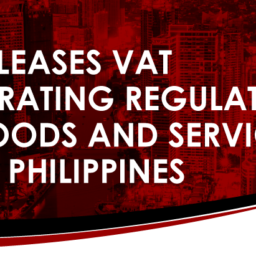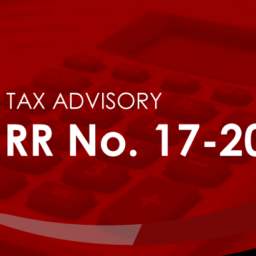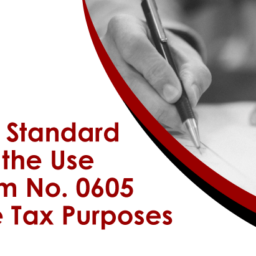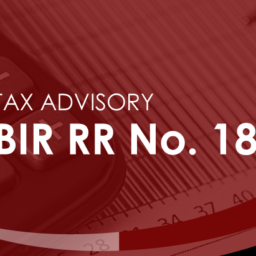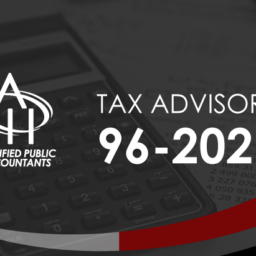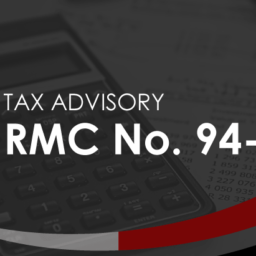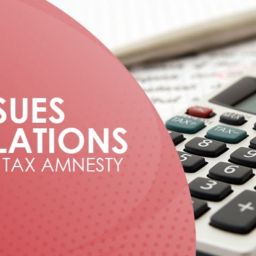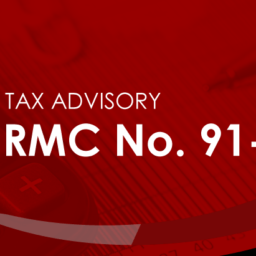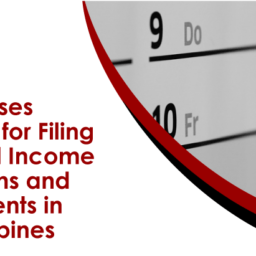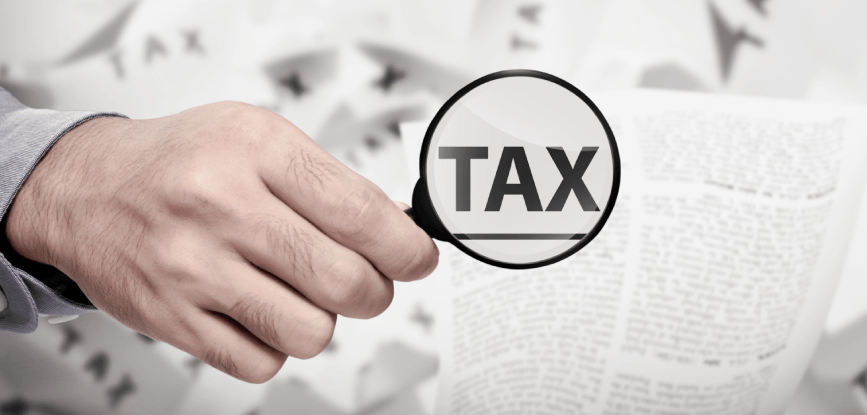
Philippine Business Tax: An In-depth Look into the Country’s Annual Business Tax System
Every year, local and foreign businesses in the Philippines prepare for the annual taxation season as required by the Bureau of Internal Revenue (BIR) and submit the required tax contributions to the country’s tax system. This season usually begins around the end of the previous year and up to the first or second month of the upcoming year.
Here, businesses begin to collate their income, revenue, employee contributions, and all other financial obligations in compliance with the Philippine government. There are numerous things entrepreneurs must keep in mind when conducting their tax audits before submitting the necessary documents to BIR.
Depending on factors such as the type of business, its size, and its operations, enterprises must submit different tax requirements per their business structure. In this article, we will be taking a dive into the Philippine Business Tax System, how it operates, and what you need to do to accomplish and achieve a successful tax audit during the country’s tax season.
Understanding the Business Tax System in the Philippines
The business tax system in the Philippines is a complex and multi-layered structure that encompasses various types of taxes and is imposed on businesses operating in the country. It includes national taxes and local taxes. Let’s take a closer look at each one. National taxes include:
- Corporate Income Tax – a tax imposed on corporations and businesses based on their net income. The current corporate income tax rate in the Philippines is 25%.
- Value-Added Tax (VAT) – a tax imposed on the sale of goods and services in the Philippines. The current VAT rate is 12%.
- Excise Tax – a tax imposed on specific goods and products such as petroleum, tobacco, and alcoholic beverages.
- Documentary Stamp Tax – a tax imposed on documents and transactions such as contracts, deeds, and bank transactions.
- Local Business Tax – a tax imposed by local government units (LGUs) on businesses operating within their jurisdiction. The tax rate varies depending on the LGU and the type of business.
Local taxes imposed on businesses vary depending on the local government unit where the business is located. Examples of local taxes include:
- Business Permit and License Tax – a tax imposed on businesses for the issuance of a permit and license to operate in a certain area.
- Real Property Tax – a tax imposed on properties such as land, buildings, and other improvements.
- Local Business Tax – a tax imposed on businesses based on their gross receipts or sales.
Moreover, the Philippine Business Tax System is administered by the Bureau of Internal Revenue (BIR) and the Local Government Units (LGUs) where the businesses operate. Businesses are required to register with the BIR and the LGUs to comply with the tax regulations and pay their taxes regularly.
The Taxation Policies in the Philippines
Taxation in the Philippines is primarily governed and structured based on the following Republic Acts:
- The Corporate Recovery and Tax Incentives for Enterprises (CREATE) Act
- Tax Reform for Acceleration and Inclusion (TRAIN) Law
- Article VI, Section 28 of the Constitution
- The National Internal Revenue Code
- Local Government Code of 1991
Furthermore, the Philippines follows a territorial taxation system, limiting taxes to be applicable only to Philippine-based income. Any foreign-based income is excluded and is subject to taxes of their country of origin.
Corporate Recovery and Tax Incentives for Enterprises (CREATE) Act
On the 26th of March, 2021, Republic Act (RA) No. 11534, otherwise known as the Corporate Recovery and Tax Incentives for Enterprises (CREATE) Act, was enacted into law by the Philippine Congress to mitigate the effects of COVID-19 and provide fiscal relief to domestic and foreign corporations doing business in the Philippines.
It aimed to amend numerous provisions listed in the former tax code, driving its focus towards lowering the country’s corporate income tax (CIT) and rationalizing tax incentives to increase the attraction of the Philippine market to inbound local and foreign investments.
The most salient feature of CREATE is the lowering of CIT rates for domestic corporations and resident foreign corporations (RFCs) from the previous 30% to 25%. Moreover, its CIT will continue to reduce by 1% annually in the next six years, starting July 2020, reaching 20% by the year 2027.
The CIT rate reductions vary depending on the type of business structure and the nature of the business your enterprise engaged within the Philippine market.
Tax Reform for Acceleration and Inclusion (TRAIN) Law
The Tax Reform for Acceleration and Inclusion (TRAIN) Law is a tax reform package that was signed into law by Philippine President Rodrigo Duterte on December 19, 2017. Its main objective is to provide additional revenue for the government to fund its infrastructure and social services programs. TRAIN Law also aims to make the country’s tax system simpler, fairer, and more efficient.
Here are some of the key provisions of the TRAIN Law:
- Reduction of Personal Income Tax – The law reduces the personal income tax rates for most taxpayers, resulting in higher take-home pay for employees. The new tax schedule provides for a tax-free bracket of up to ₱250,000 and a maximum tax rate of 35% for those earning ₱8 million and above.
- Increase in Excise Tax – The TRAIN Law increased the excise tax rates on fuel, sugary drinks, and tobacco products to generate additional revenue for the government.
- Expansion of Value-Added Tax (VAT) – The VAT base has been expanded to cover previously exempt goods and services, such as the lease of residential units with a monthly rent of ₱15,000 and above.
- Tax Amnesty Program – The law provides for a tax amnesty program that allows taxpayers to settle their tax liabilities at a lower rate and without penalties.
- Estate Tax and Donor’s Tax – The law also increased the threshold for the estate tax to ₱5 million and lowered the donor’s tax rate to 6%.
It is essential for entrepreneurs to familiarize themselves with the various taxation policies that may be applicable to their business in the Philippines.
Tax Filing and Payment Procedures
The BIR has established various tax filing and payment procedures that businesses must follow to comply with the law. The following are some of the most common tax filing and payment procedures.
- Annual Income Tax Return – All businesses are required to file an annual income tax return (ITR) every year, which summarizes their total income and expenses for the previous year. The deadline for filing the ITR is on or before April 15 of the following year.
- Quarterly VAT Return – Businesses that are VAT-registered are required to file a quarterly VAT return summarizing their VAT sales and purchases for the quarter. The deadline for filing the VAT return is on or before the 25th day of the month following the end of the quarter.
- Quarterly Percentage Tax Return – Businesses that are not VAT-registered but are engaged in certain types of businesses, such as freelancers, consultants, and professionals, are required to file a quarterly percentage tax return. The percentage tax is computed as a percentage of gross sales or receipts for the quarter.
- Quarterly Income Tax Return – Those that are not VAT-registered and are engaged in certain types of businesses are required to file a quarterly income tax return. The income tax is computed based on the net income for the quarter.
- Monthly Remittance Return of Creditable Income Taxes Withheld – Businesses that are required to withhold taxes from their employees or suppliers are required to file a monthly remittance return of creditable income taxes withheld. The deadline for filing the return is on or before the 10th day of the following month.
- Monthly Remittance Return of Final Income Taxes Withheld – Businesses that are required to withhold final taxes from their employees or suppliers are required to file a monthly remittance return of final income taxes withheld. The deadline for filing the return is on or before the 10th day of the following month.
- Other Tax Filing and Payment Procedures – Apart from the above-mentioned tax filing and payment procedures, there are other tax-related obligations that businesses need to comply with, such as the annual registration fee, documentary stamp tax on certain transactions, and registration for Electronic Filing and Payment System (eFPS).
Tax Incentives and Exemptions
The Philippine government provides various tax incentives and exemptions to encourage foreign direct investments and support small businesses, especially those placed in Special Economic Zones. This initiative was made to further the country’s developments and improve the business setting in the country.
Incentives for Registered Enterprises in Special Economic Zones
Registered enterprises in Special Economic Zones (SEZs) in the Philippines enjoy various incentives aimed at attracting more investments and promoting economic growth. Some of these incentives include:
- Tax incentives – Enterprises registered in SEZs are granted income tax holidays (ITH) ranging from 4-8 years, depending on their location and activities. After the ITH, they are entitled to a special 5% tax on gross income earned (GIE) in lieu of all national and local taxes.
- Duty-free importation – This allows SEZ-registered enterprises to import capital equipment, raw materials, and supplies free from customs duties, national internal revenue taxes, and other fees.
- Simplified customs procedures – Businesses are entitled to simplified customs procedures, such as the use of electronic customs clearance systems and priority processing of import and export documents.
- Employment of foreign nationals – Such are allowed to hire foreign nationals for certain positions, subject to certain conditions.
- Infrastructure support – SEZs offer infrastructure support to registered enterprises, such as access to reliable power and water supply, waste disposal, and telecommunications facilities.
- Regulatory and administrative support – Engaging under SEZs provides companies with regulatory and administrative support, such as fast-track permits and licenses and assistance in securing visas, work permits, and other immigration requirements.
Overall, these incentives make the Philippines Special Economic Zones an attractive location for foreign and local businesses to invest and operate in.
Incentives for Enterprises Engaged in Priority Activities
Enterprises engaged in priority activities in the Philippines may be eligible for certain incentives aimed at promoting investment and economic growth in specific sectors, such as agriculture, tourism, and renewable energy. Some of these incentives include:
- Income tax holiday – Enterprises engaged in priority activities may be granted an income tax holiday (ITH) for a certain period, ranging from 2-6 years, depending on the nature and location of their activities.
- Enhanced deductions – Enterprises engaged in priority activities may be entitled to additional deductions for certain expenses, such as research and development, training, and advertising.
- Infrastructure support – The government may provide infrastructure support to enterprises engaged in priority activities, such as access to reliable power and water supply, waste disposal, and telecommunications facilities.
- Regulatory and administrative support – Similar to those operating in SEZs, enterprises engaged in priority activities may be provided with regulatory and administrative support.
Exemptions for Small Businesses
Small businesses in the Philippines may be eligible for certain exemptions aimed at reducing the burden of government regulations and promoting their growth. Businesses with gross annual sales or receipts of not more than ₱3 million are exempted from VAT, and they are subject to a lower income tax rate of 8% of their gross sales or receipts. Other exemptions for small businesses include:
- Exemption from VAT – Those with annual sales below a certain threshold may be exempt from paying value-added tax (VAT) on their sales.
- Simplified tax compliance – Small businesses may be allowed to use simplified tax compliance procedures, such as the percentage tax or the optional standard deduction.
- Exemption from certain fees and charges – Such can be exempt from certain fees and charges, such as registration fees, application fees, and other regulatory fees.
- Exemption from minimum wage requirements – Subject to certain conditions qualified small businesses may be allowed to pay their employees below the minimum wage, subject to certain conditions.
- Exemption from certain labor regulations – Small businesses may be exempt from certain labor regulations, such as the requirement to provide certain benefits and entitlements to their employees.
- Exemption from certain zoning and building regulations – Qualified enterprises can be excluded from certain zoning and building regulations, such as obtaining permits and requirements to operate their business.
These exemptions are designed to provide small businesses with a more favorable regulatory environment, which can help them grow and contribute to the economy. However, it is important to note that the specific exemptions and conditions may vary depending on the size and nature of the business, including applicable laws and regulations.
Familiarize Yourself with the Salient Business Tax System in the Philippines
The Philippine tax system can be complex and challenging for businesses to navigate, but understanding the processes, incentives, and exemptions can help them comply with the regulations and maximize their tax benefits. You may also refer to the tax calendar to be up-to-date with the deadline of submissions and filing of the required documents for proper compliance.
By staying informed and seeking professional advice when needed, businesses can avoid common tax issues and problems and focus on their core operations and growth. If you are unsure of the processes and terms, you can always reach out to accounting firms to guide you through the specifics of the Philippine Business Tax System.
Frequently Asked Questions about Philippine Business Tax System
The deadline for filing the annual income tax return is on or before April 15 of the following year.
The percentage tax is a tax computed as a percentage of gross sales or receipts for the quarter, which is applicable to businesses that are not VAT-registered but are engaged in certain types of businesses.
Small businesses with gross annual sales or receipts of not more than PHP 3 million are exempted from VAT, and they are subject to a lower income tax rate of 8% of their gross sales or receipts.
Tax evasion and fraud are serious offenses that can result in fines, penalties, and imprisonment.
Businesses need to follow the correct procedures and submit the required documents to claim their tax refunds or credits. The process can be time-consuming and complicated, so seeking professional advice is recommended.
Be Properly Guided in Navigating the Philippine Tax System
Familiarizing yourself with the Philippine tax system can be intimidating without proper guidance. Our team of seasoned accountants can assist you in easing the transactions of your tax compliance obligations.




